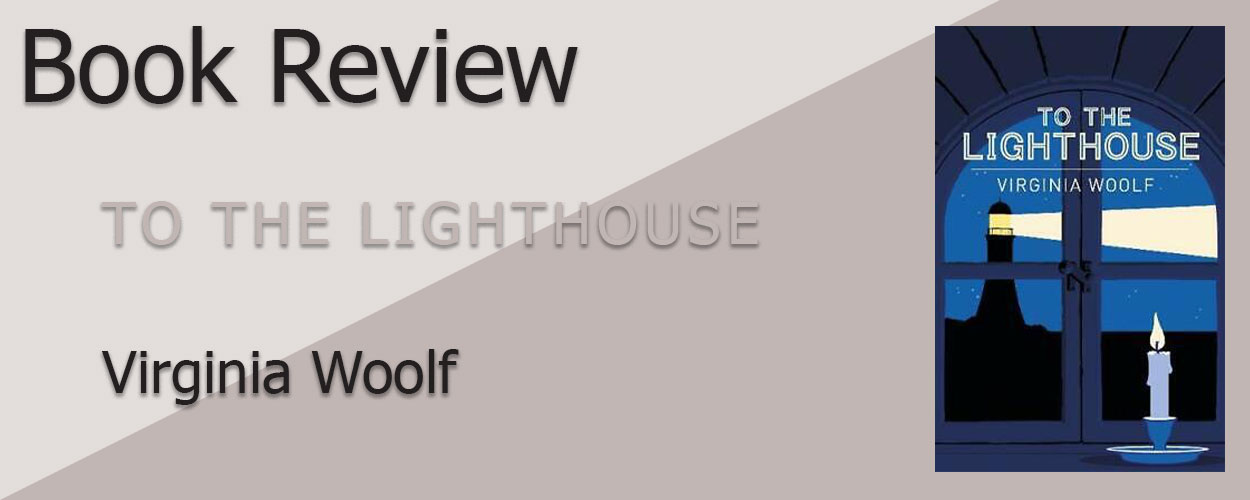

I liked it
I’ve previously read one of Woolf’s essays, and decided to start reading her collection of novels now, beginning with this one!
Read: Jan. 21, 2024
Genre: Classic, Literary Fiction
Audience: General
Book contains: character death
Purchase a copy from Amazon.ca
James Ramsay is eager to visit the lighthouse which he can see from his bedroom window, and his mother tells him they can go if the weather holds. His father imperiously refuses on the grounds of a storm; others view the family from without.
This is the type of book that may take me a few rereads to finally understand the point behind it, as there was a lot of philosophy and introspection about the meaning of life that flew over my head.
This book was told in third person, and followed the different characters around in the different scenes, switching at chapter breaks. It showed the thoughts of these characters as well, and sometimes changed to a new character’s thoughts within the same scene, though not quite “head-jumping” as the switch was often a permanent change. It was told in three parts, with smaller sections, then even smaller chapters to separate each scene.
I listened along to this book on Spotify, as I added it to my Audiobooks playlist a while ago. I have a boxed set of Virginia Woolf’s novels from Arcturus, but didn’t actually pick up the physical book until the last few chapters, as I was listening while bookbinding before that.
There are a few focal characters who are given more consideration than others, but I can say with certainty that James Ramsay, Mrs Ramsay, and Lily Briscoe were the most prominent trio. James is only six when the story begins, and sixteen by the end; Lily is in her mid-thirties and Mrs Ramsay in her mid-fifties in the beginning of the book. The rest of the characters meld together, as James has seven older siblings. His father is a man who seeks women’s sympathy, and the two other men, Charles Tansley and Augustus Carmichael, make recurring appearances.
I didn’t quite understand the relationship between the Ramsay family and the others—are they tenants? neighbours?—but they all seemed somewhat removed from each other. Lily is a woman in love with the Ramsay family way of life as she looks upon them from the outside, unable to express her emotion. Her grief by the end is somewhat overshadowed by pride at finally finishing her painting of the house and grounds and ocean; she remains single and detached from everyone—by choice.
I found Woolf’s writing style itself is aloof and dreamy. She likes to repeat sentences in slightly different ways—I take it’s to emphasize ideas and emotions, and to write in the way of human thought. It very much shows the inner workings of the human mind, which lends itself beautifully to the ideas she expresses in her work.
The pacing of this novel wasn’t bad. The lighthouse is mentioned often throughout the book, and the plot is always leading towards it. It was slowed a bit by the beautiful descriptions of nature and people, and also by Woolf’s tendency to repeat lines and phrases for emphasis, but overall it moved swiftly along.
It’s an interesting book to be sure; I’d recommend it to lovers of depth and questioning. The psychological depth of the characters and metaphors is to be admired.
The Voyage Out by Virginia Woolf
Mrs Dalloway by Virginia Woolf
To The Lighthouse by Virginia Woolf
Orlando: A Biography by Virginia Woolf
A Room of One’s Own by Virginia Woolf
Villette by Charlotte Brontë
Wuthering Heights by Emily Brontë
Great Expectations by Charles Dickens
Tigerpetal Press is a small book press dedicated to publishing local authors and poets.